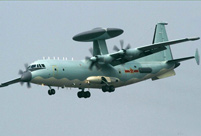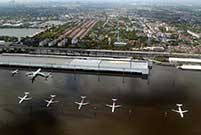

Zhang Dawei, head of the Beijing Environmental Monitoring Center, said the annual readings combine data from good and smoggy days, and that overall the days of heavy pollution have been reduced by one day.
He conceded that heavy pollution days in November and December worsened the air quality dramatically and dragged down the overall performance.
Before smog blanketed the capital at the end of the year, Beijing had managed to cut the PM2.5 daily average readings by 20 percent year-on-year, he said.
Soaring coal consumption and vehicle exhaust emissions have been major factors in the recent smog, the report said.
Beijing slashed coal consumption to 12 million metric tons in 2015-11 million metric tons fewer than in 2012. Also, as part of the restrictions, over 300,000 households in Dongcheng and Xicheng districts, the core region of Beijing, used electricity to provide heat to replace the use of coal-fired boilers.
Beijing is drafting a plan for long-term environmental protection that is expected to be released by the end of the year, he said. He added that by around 2030, Beijing is expected to reach 35 micrograms per cubic meter, at or below which is considered the best air quality.
In addition to the long-term target, the central government has issued a near-term target that might not be easy to reach.
While Beijing has lowered the annual PM2.5 reading to 80.6, it's expected to reach 60 by 2017, as stipulated by the State Council, China's Cabinet.
"It's never easy to cut the PM2.5 readings and improve air quality, but we will further the restrictions on emission of pollutants," said Fang, the deputy head of the Environmental Protection Bureau.
 |
 Top 10 weapons in the world in 2015
Top 10 weapons in the world in 2015 Are these the world’s scariest landing strips?
Are these the world’s scariest landing strips? In pics: Left behind children in China
In pics: Left behind children in China Eight modern day engineering marvels of China
Eight modern day engineering marvels of China Chinese beauty with sexiest bottom
Chinese beauty with sexiest bottom Charming female bodybuilders of Chengdu University
Charming female bodybuilders of Chengdu University Polish sports stars strip off for risqué calendar
Polish sports stars strip off for risqué calendar Spectacular aerial photos of the Three Gorges
Spectacular aerial photos of the Three Gorges Contestants of Mrs. Globe pose for photo in Shenzhen
Contestants of Mrs. Globe pose for photo in Shenzhen
 Top 20 hottest women in the world in 2014
Top 20 hottest women in the world in 2014 Top 10 hardest languages to learn
Top 10 hardest languages to learn 10 Chinese female stars with most beautiful faces
10 Chinese female stars with most beautiful faces China’s Top 10 Unique Bridges, Highways and Roads
China’s Top 10 Unique Bridges, Highways and Roads Fan rage awakens
Fan rage awakens School without students
School without students NE China’s frozen economy thaws
NE China’s frozen economy thaws Those most anticipated TV series of 2016
Those most anticipated TV series of 2016Day|Week